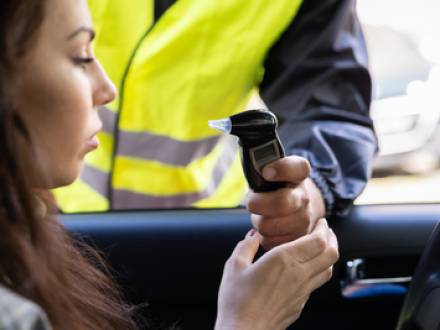Challenging Breathalyzer Tests Over Illnesses or Medications
 Ongoing challenges and recent court cases have highlighted some persistent flaws with DUI breathalyzer tests. The device itself can be faulty, particularly when it has not been regularly calibrated and tested, or the officer may not administer the test correctly due to a lack of training. Environmental factors, like extreme temperatures, can potentially skew the results of a breathalyzer test, as can the presence of residual mouth alcohol from certain foods, drinks, or even mouthwash.
Ongoing challenges and recent court cases have highlighted some persistent flaws with DUI breathalyzer tests. The device itself can be faulty, particularly when it has not been regularly calibrated and tested, or the officer may not administer the test correctly due to a lack of training. Environmental factors, like extreme temperatures, can potentially skew the results of a breathalyzer test, as can the presence of residual mouth alcohol from certain foods, drinks, or even mouthwash.
Manufacturers have consistently refused to disclose the source code for their breathalyzer software, so full scientific scrutiny regarding how the results are calculated has been elusive. In a 2025 Minnesota case, a judge ordered the disclosure of source code for an Intoxilyzer 5000, citing the "enormous" potential for errors resulting from the unproven methodology of the device. Since breath samples are not preserved, the machine essentially validates its own "secretive analysis."
One of the most common reasons the results of a breathalyzer test can be inaccurate is due to certain medical conditions and medications. If you have been charged with DUI (625 ILCS 5/11-501) based on your BAC reading, it is important that you speak to a knowledgeable Aurora, IL criminal defense attorney who is experienced in DUI charges and defenses.
Medical Conditions That Can Interfere with BAC Test Results
There are a number of medical conditions that can result in a falsely high BAC reading, including:
Diabetes
Diabetic ketoacidosis and ketosis produce ketones, which include acetone. Acetone can be mistaken by breathalyzers for ethanol, leading to a false high BAC reading. Further, symptoms of low blood sugar (hypoglycemia) mimic intoxication. Slurred speech, confusion, clumsiness, poor coordination, dizziness, drowsiness, and poor motor skills are all hallmarks of hypoglycemia. A police officer can easily misinterpret these symptoms as impairment due to alcohol or drugs.
Gastroesophageal Reflux Disease (GERD)
Acid reflux can introduce alcohol vapors or stomach gases into the mouth as stomach acid and naturally produced gut alcohol travel up the esophagus, leading to falsely high readings on a breathalyzer test. This occurs because the esophagus valve malfunctions, allowing alcohol vapors and liquid to reach the mouth, even after the observation period. Acid reflux can also cause burping and belching, which sends recently consumed alcohol into the mouth.
Respiratory Conditions
Respiratory conditions, such as asthma or bronchitis, can affect breathing patterns, including the duration and volume of the breath sample, potentially skewing BAC results. Conditions like hyperventilation or shallow breathing can actually reduce BAC levels by bringing up air from the "dead space" in the lungs, which has less alcohol content. A person who is unconsciously holding his or her breath for a short period of time can increase BAC readings by allowing more alcohol to accumulate in the lungs prior to a breath sample being taken.
Drugs That Can Potentially Affect BAC Readings
Mouthwash, breath fresheners, cough syrups, and cold medications can potentially increase BAC results because of the alcohol in these substances. Medications for asthma, like Albuterol, can skew breath test results because many inhalers contain methyl compounds that a breathalyzer mistakes for ethanol (alcohol). In some cases, the inhaler may contain alcohol as a propellant, and these substances linger in the airways longer than the alcohol in a drink, leading to a temporary, inaccurate BAC reading.
Contact a Kane County, IL DUI Lawyer
Because a DUI conviction can alter your life in many adverse ways, it is important for you to know that breathalyzer results are not always accurate, although the police treat BAC readings as hard, irrefutable evidence. Do not assume the machine is right. Speak to a highly experienced Aurora, IL criminal defense attorney from the Law Office of Patricia Magaña, LLC who can begin building a solid defense on your behalf to help you avoid as many negative consequences as possible.

 630-448-2001
630-448-2001






